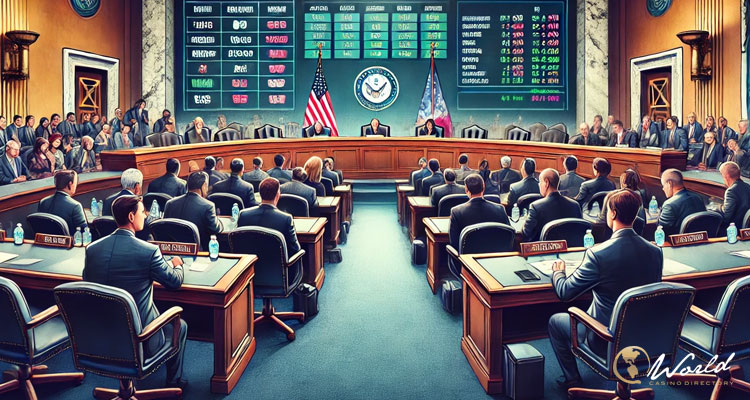The United States Senate Judiciary Committee recently convened to assess the need for federal oversight in the rapidly expanding sports betting industry. More than six years after the U.S. Supreme Court legalized sports gambling nationwide, the hearing sought to address complex issues arising from the industry’s growth.
The discussion, which included testimony from NCAA President Charlie Baker, focused on college sports and the potential dangers associated with certain betting practices, such as proposition bets (prop bets) that target individual player performances. Although the session highlighted several pressing concerns, it provided little in the way of actionable solutions.
Senator Thom Tillis (R-NC) proposed forming a commission to study the issue for a year, aiming to craft federal rules that would apply across states with legalized sports betting. Meanwhile, Senator Marsha Blackburn (R-TN) referenced a letter she co-signed with Senator Catherine Cortez Masto (D-NV) to the Department of Justice addressing the risk of match-fixing.
Despite these discussions, the hearing revealed Congress’s limited progress in tackling the multifaceted issues of sports betting, according to NBC Sports. From protecting college athletes from harassment to curbing irresponsible gambling, there is a gro wing acknowledgment that the current system needs stricter oversight.
NCAA President Calls for Ban on College Prop Bets
During his testimony, NCAA President Charlie Baker voiced support for federal regulations, particularly a ban on prop bets in college sports. These wagers, which focus on individual player performances rather than game outcomes, are currently permitted in about 20 states.
Baker highlighted the impact of such bets on student-athletes, noting an increase in harassment from disgruntled gamblers. According to NCAA research, 10% to 15% of Division I athletes have reported being harassed, with football and basketball players being the most frequent targets.
“We believe that when bettors can’t gamble on college athletes’ individual performances, they’re far less likely to attempt to scrutinize, coerce or harass student-athletes,” Baker explained.
He cited the example of Armando Bacot, a University of North Carolina basketball player who received numerous angry messages from gamblers upset about his rebound statistics during a tournament game. Baker added that harassment often extends beyond online abuse, with athletes facing pressure from classmates and friends who have placed bets on their performance.
The NCAA has called for measures to prevent known harassers from placing bets in the future, emphasizing the need for greater protection for college athletes.
The S.A.F.E. Bet Act and Industry Concerns
Central to the hearing was a proposed bill, the S.A.F.E. Bet Act, introduced by Senator Richard Blumenthal (D-CT) and co-sponsored by Representative Paul Tonko. The legislation aims to implement strict regulations on sports gambling, including:
- A ban on prop bets in college sports.
- Restrictions on promotional offers, such as bonus bets.
- Limitations on gambling advertisements during sporting event broadcasts.
- A prohibition on using credit cards for betting deposits.
- Requirements for affordability checks on high-volume gamblers.
The bill also seeks to address broader concerns about the societal impact of legalized sports betting. Research has shown that the industry, which generated an estimated $120 billion in wagers last year, has led to increases in gambling addiction, debt, and bankruptcy. College-age men are particularly at risk, with studies indicating that two-thirds of men in this demographic have gambled on sports, often frequently.
While the S.A.F.E. Bet Act has little chance of passing before the current congressional session ends in January, Blumenthal and Tonko are expected to reintroduce the legislation in the next session.


